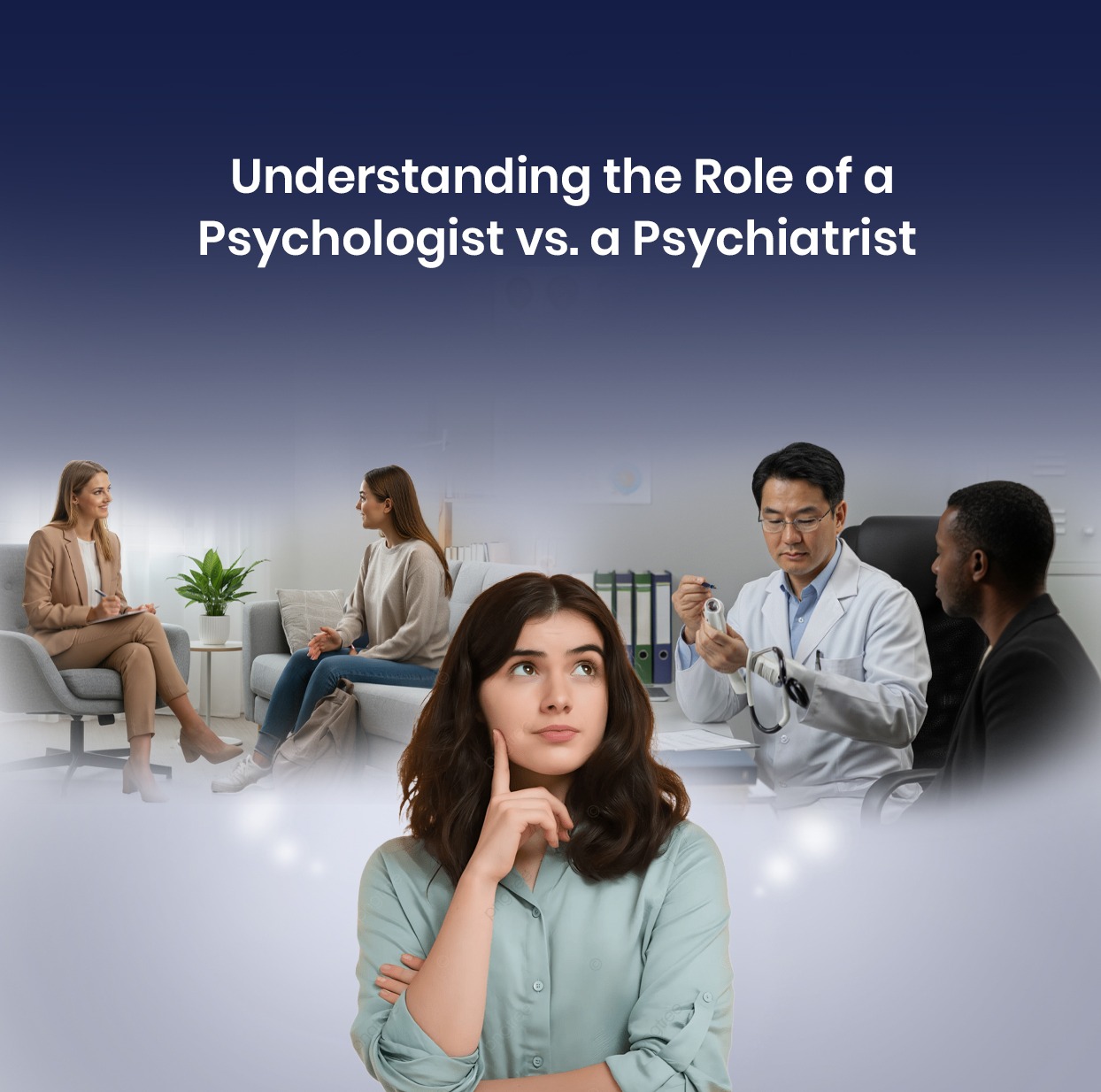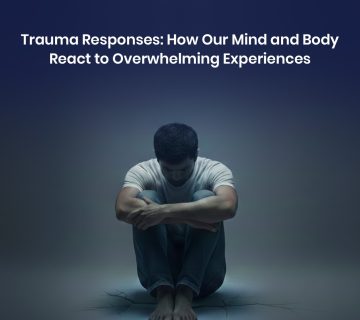Still today there are major misunderstandings about the roles that psychologists and psychiatrists play. Some people use the two terms interchangeably to refer to a single professional who helps other people deal with their mental health problems. While that may be true, both are professionals who try to help improve one’s emotional well-being; the training, approach, and kind of treatment differ greatly between the two professions. This blog delves into the different yet complementary roles of psychologists and psychiatrists in helping you understand whom to approach and when.
1. Understanding the Psychologist’s Role
A psychologist is an educated professional who studies human behaviour, emotions, and the thought processes of individuals. He uses different modes of talk therapy and assessment to help an individual get over stress, anxiety, depression, and relationship problems. Psychologists help clients trace the root cause of their challenges and guide them toward emotional healing and self-awareness. Being the best online counseling in Malayalam, they offer a safe and confidential space to express your thoughts and feelings in your own language, which can be incredibly comforting and effective in therapy.
2. Role of a Psychiatrist
A psychiatrist is a medical doctor specially trained in mental health. They can diagnose mental disorders and, if necessary, prescribe medication as well. Psychiatrists would rather focus more on the biological and medical elements that create mental health problems, such as schizophrenia, bipolar disorder, or major depression. While psychologists can help you process your feelings through therapy, a psychiatrist will be able to help you stabilize symptoms with medication and a medical treatment plan. Quite often, they work together to ensure a person is getting total care.
3. Education and Training
The difference between a psychologist and a psychiatrist also lies in their education, whereas psychologists hold a master’s or doctoral degree, such as an MPhil or PhD in psychology, psychiatrists finish medical school and then specialize in psychiatry. This shapes their professional approach. Given this, when looking to seek support for your emotional or behavioral challenges, connecting with professionals who offer the best psychology counseling in Kerala ensures scientifically grounded guidance that would suit your specific needs, whether it is therapy, diagnosis, or emotional rehabilitation.
4. Treatment Methods
The various treatment methods that psychologists usually use are evidence-based therapies such as Cognitive Behavioral Therapy (CBT), psychotherapy, and mindfulness-based approaches. These help the clients to explore their emotions, change negative thought patterns, and develop healthy coping skills. Psychiatrists may prescribe medications to stabilize brain chemistry, which could include anything from antidepressants to mood stabilizers. Very often, the best results come from combining therapy with medication. That is why there is an increasing demand for holistic services that can offer the best online counseling in Kerala, integrating emotional support with medical guidance for complete mental well-being.
5. When to Approach
If you are feeling stressed, low on motivation, emotionally unstable, or having problems with a relationship, a psychologist is a good starting point. However, if your symptoms are more serious, such as hallucinations, extreme mood swings, or suicidal thoughts, then you need to consult with a psychiatrist. Both professionals go hand in hand, and many cases require them to work together for the best treatment.
Conclusion
Understanding the difference between a psychologist and a psychiatrist is crucial in getting the right help at the right time. While psychologists focus on emotional healing through therapy, psychiatrists deal with medical and chemical aspects concerning mental health. Together, they form the backbone of mental wellness care. Be it emotional support or medical treatment that you are looking for, being well-informed about their distinct roles aids in making choices toward a healthier, more balanced mind.




